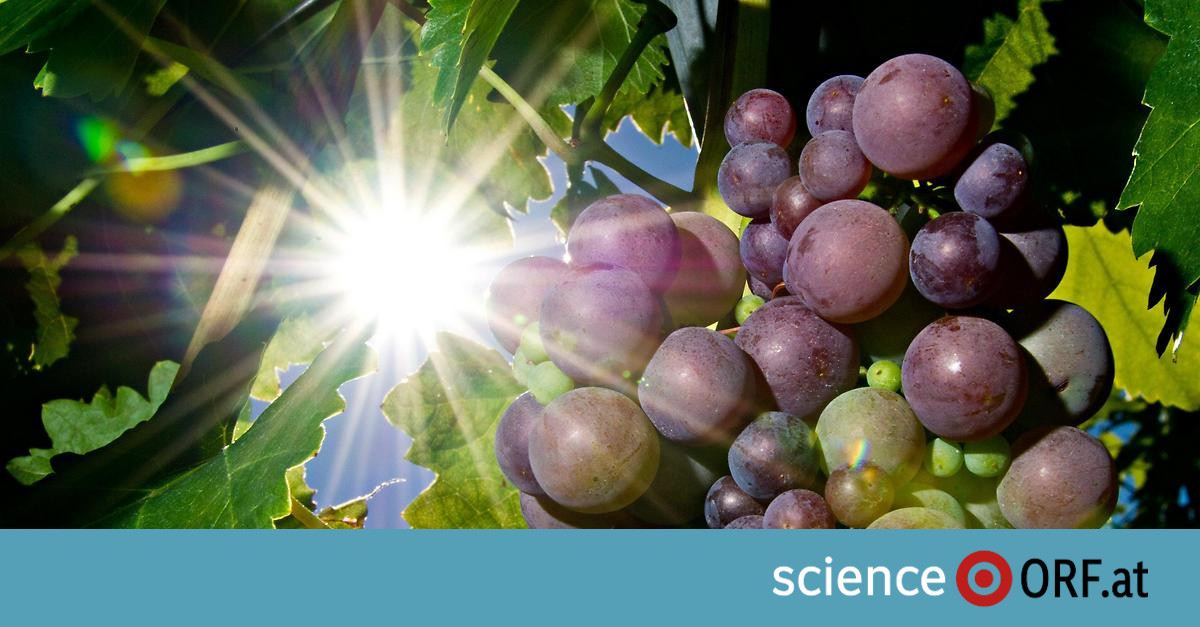Temperatures are rising and this also poses major challenges for agriculture. A study published just this week shows that hops are under increasing pressure due to global warming: yields are declining, and even the typical taste of beer is at stake. But when it comes to wine, things look different, according to data from the British study.
The taste of wine is affected by various factors: many details play a role, from the quality of the soil to the orientation of the vines and the weather during the growing phase to subsequent processing. “Grapes from the same vine can taste completely different from year to year,” says the botanist. Andrew Wood from the University of Oxford in conversation with science.ORF.at.
Search for ideal conditions
As part of his doctoral thesis, Wood wanted to clarify how wine quality depends on climate and what weather conditions ensure particularly high-quality production. To do this, he analyzed wine reviews from 1950 to 2020 and then compared them to climate data from a well-known French wine-growing region. Bordeaux.
What is currently being presented in the specialized magazine “iScience”. Stady Wood, along with his colleagues, explains that wines from Bordeaux have become better rated over time. “There could be several reasons for this, for example that production has changed radically and more and more technology is being used, or that the experience of winegrowers has simply led to better results.”
Mild winter, hot summer
However, for the botanist, it is clear that, among many other factors, climate also has a very strong influence on the taste and quality of grapes. Numerous model calculations and comparisons with climate data showed that certain conditions were more often associated with well-rated wines.
The research team’s analysis found that mild and humid winters, warm early springs, hot dry summers, and cool and dry autumns mostly resulted in good ratings. “Why this happens was not part of our investigation, but we hypothesize that particularly wet and mild winters ensure that the vines enter the growth phase early, supply energy quickly and thus produce better yields,” Wood said.
Is global warming beneficial?
As global warming increases, the quality of wines in Bordeaux will likely continue to increase in the coming years. Wood also assumes that climatic conditions suitable for wine production will increasingly appear in other regions in the future. “The results of our study suggest that global warming could have a positive impact on wine quality.”
But there are also some catches. “The number of extreme events is increasing, and hail and heavy rain are increasingly damaging grapes,” says Wood. Increasingly frequent late frosts in spring are a big problem for plants.
There is another important factor that must be taken into account in light of global warming: “Wine can only benefit from rising temperatures as long as there is still enough water to grow the vines.” At a certain point, global warming also means the end. Many wine growing areas.
Viticulture is moving north
Wood believes it is likely that viticulture will move north over time. New wine-growing regions may emerge, but old ones may disappear. It remains to be seen whether global warming will benefit or harm wine quality overall, taking all relevant factors into account.
According to Wood, the results obtained from Purdue are intended to be the basis for further research in this area and demonstrate once again how important climate protection is for agriculture. The results could also help adapt some wine growing processes more closely to future climate conditions and challenges.

“Food practitioner. Bacon guru. Infuriatingly humble zombie enthusiast. Total student.”







More Stories
Ozdemir wants to become Prime Minister of Baden-Württemberg
Why Kamala Harris goes from “joy” to “fear.”
According to Kiev, the first North Korean troops in Kursk